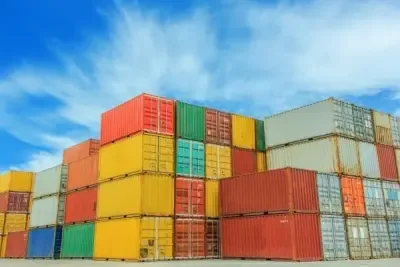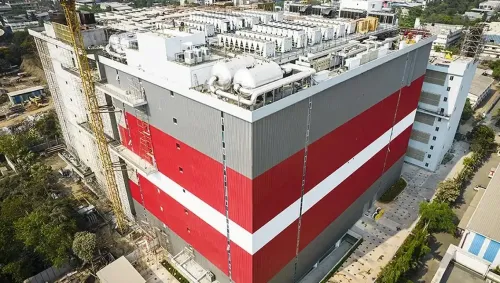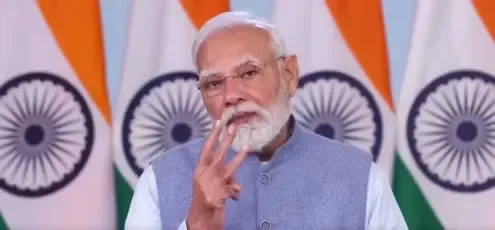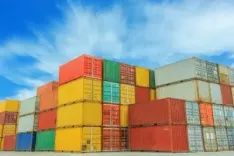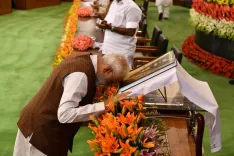How Do GST Reforms Enhance Quality of Life?
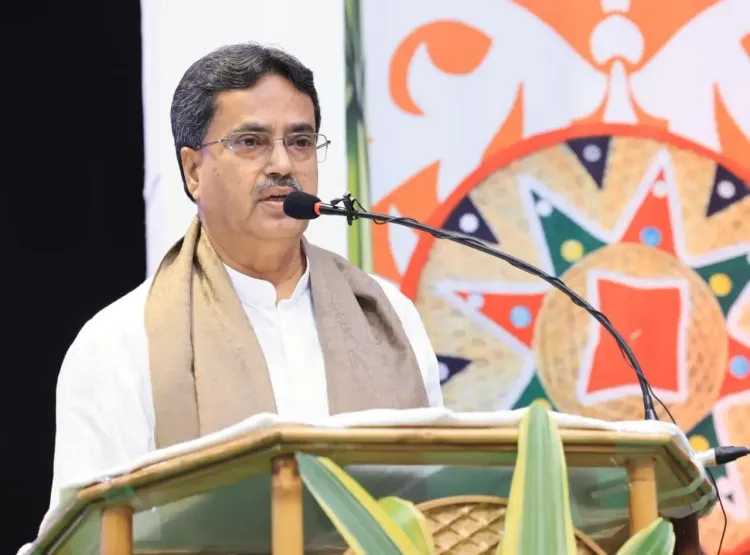
Synopsis
Key Takeaways
- GST reforms have streamlined the tax structure to two slabs: 5% and 18%.
- Essential items like milk and bread are now tax-free.
- Transportation time for goods has been reduced by 33% due to the elimination of toll stops.
- Life and health insurance have been exempted from GST.
- Construction-related taxes have been reduced to aid in building costs.
Agartala, Oct 8 (NationPress) Tripura Chief Minister Manik Saha expressed on Wednesday that the recent GST reforms have created a new avenue for enhancing the quality of life for ordinary citizens.
He emphasized that the economic stability of both the nation and the state is strengthening through the GST framework, leading to improved revenue collection as a direct result of these reforms.
Speaking at a workshop titled ‘Benefits of the Next Generation’ in Agartala, the Chief Minister stated that since India's independence, Prime Minister Narendra Modi has successfully realized the vision of ‘One Nation, One Tax’, a concept that once seemed unimaginable.
“We previously encountered various taxes such as Excise Duty, Customs Duty, Service Tax, Value Added Tax, Central State Tax, Luxury Tax, and Entertainment Tax. The Prime Minister has guided the nation to a better path. Under his leadership, GST has been adopted nationwide, accelerating the growth of the country through this tax reform. With the implementation of this system, the country's economy has advanced from the 11th position to the 4th position,” he asserted.
Saha underscored the current ambition of establishing Viksit Bharat 2047. He noted that Tripura has also devised a strategic plan for achieving Viksit Bharat 2047.
“Previously, the GST framework consisted of five tiers. It has now been streamlined to just two slabs — 5 percent and 18 percent. This change has significantly benefited the general populace. GST is a people-centric initiative aimed at enhancing the welfare of the common man. Through this system, individuals can save at least 4 percent on their monthly expenses,” the Chief Minister highlighted.
He elaborated that previously, goods vehicles were required to halt at various toll or naka points along national highways; now they can travel directly to their destinations.
“Earlier, these nakas were notorious for corruption. The elimination of these stops has reduced the transit time for goods vehicles by 33 percent. This change has also resulted in substantial fuel savings. Alongside this, the economic conditions of both the country and the state are significantly improving thanks to this system,” Saha added.
He reported that the revenue generated through GST reforms has drastically improved, stating that essential products like milk, chickpeas, and bread are now exempt from tax.
Additionally, various household items, including soap, shampoo, toothpaste, and bicycles, are now subject to only 5 percent tax.
Similarly, items such as salt, sauce, pasta, noodles, chocolate, butter, and ghee have seen their tax rates slashed from 12 percent or 18 percent to 5 percent, he noted.
Saha remarked that this has provided substantial relief to average and middle-class families.
Moreover, life and health insurance have also been exempted from GST. Thanks to the tax reduction, life-saving medications, medical equipment, diagnostic kits, and medical devices are now taxed at either zero or 5 percent.
“Furthermore, farmers’ tractors and rice harvesters will now incur only a 5 percent tax. The tax on cement purchases has dropped from 28 percent to 18 percent, which will help save costs in construction,” he concluded.
Finance Minister Pranajit Singha Roy, Finance Secretary Apurba Roy, and other senior officials were present at the gathering.

